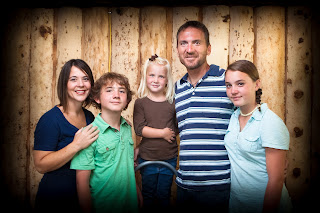The Doxology
The Lord's prayer ends how it began: with God. "For thine is the kingdom and the power and the glory forever and ever. Amen." The kingdom refers to God's all embracing control over all of his universe. He created the world, so he has the right to rule the world--and, in fact, does. More particularly, his kingdom denotes his design to redeem a people for himself by overthrowing the rule and dominion of Satan. Having asked for God to bring that about, the prayer concludes by asserting its reality: the kingdom is his. J. I. Packer comments:
The power is God's as well. God can do anything in accord with his nature. There is no power that can overthrow the rule of God Almighty. Jesus came into the world to destroy the works of the devil and his naive claim to power (1 John 3:8). Derek Thomas provides this helpful summary:
The glory is also his. The word glory speaks of "weight" and "worth." Glory can be defined as God's essential being. It is synonymous with who and what God is. The doxology is therefore attributing, not only rule and might to God (kingdom and power), but also divinity. To say that all glory belongs to him is the same as saying, He is the Lord!
It is noteable then that when John wants to convey to us that Jesus is none other than God, he declares, "we have seen his glory." Paul writes along the same lines: "For God, who said, 'Let light shine out of darkness,' made his light shine in our hearts to give us the light of the knowledge of the glory of God in the face of Christ" (2 Corinthians 4:6).
Finally, the doxology declares that God has his kingdom, power and glory forever and ever. God is outside of time. Time itself is part of the created order of things. He is not subject to the ravages of time. He is unchangeable, utterly dependable, always the same yesterday, today and forever (Hebrews 13:8). Because God will never change, we know that our relationship with God as his children will never change.
Amen is a transliteration of the Hebrew word meaning "truth" or "firmness." Jesus used it to emphasize some important truth he was about to speak ("Amen, Amen" or "Verily, verily" as the King James Version rendered it). Saying "Amen" to this prayer (or any other) asserts our conviction that everything in it is our longing. We are saying, "This is my prayer. These petitions express the longing of my heart. This is my confession of faith, my record to what is essential and true." Amen.
Satan, the prime example of how sin breeds cunning but saps intelligence and rots the mind, does not accept that the Lord is king in this basic sense, and would dismiss this doxology--indeed, all doxologies--as false; but Christians know better, and praise God accordingly.
The power is God's as well. God can do anything in accord with his nature. There is no power that can overthrow the rule of God Almighty. Jesus came into the world to destroy the works of the devil and his naive claim to power (1 John 3:8). Derek Thomas provides this helpful summary:
What needs do you have? The kingdom and power are the Lord's to provide!
What sins have you confessed? The kingdom and power are the Lord's to pardon!
What temptations threaten to undo you? The kingdom and power are the Lord's to protect you!
The glory is also his. The word glory speaks of "weight" and "worth." Glory can be defined as God's essential being. It is synonymous with who and what God is. The doxology is therefore attributing, not only rule and might to God (kingdom and power), but also divinity. To say that all glory belongs to him is the same as saying, He is the Lord!
It is noteable then that when John wants to convey to us that Jesus is none other than God, he declares, "we have seen his glory." Paul writes along the same lines: "For God, who said, 'Let light shine out of darkness,' made his light shine in our hearts to give us the light of the knowledge of the glory of God in the face of Christ" (2 Corinthians 4:6).
Finally, the doxology declares that God has his kingdom, power and glory forever and ever. God is outside of time. Time itself is part of the created order of things. He is not subject to the ravages of time. He is unchangeable, utterly dependable, always the same yesterday, today and forever (Hebrews 13:8). Because God will never change, we know that our relationship with God as his children will never change.
Amen is a transliteration of the Hebrew word meaning "truth" or "firmness." Jesus used it to emphasize some important truth he was about to speak ("Amen, Amen" or "Verily, verily" as the King James Version rendered it). Saying "Amen" to this prayer (or any other) asserts our conviction that everything in it is our longing. We are saying, "This is my prayer. These petitions express the longing of my heart. This is my confession of faith, my record to what is essential and true." Amen.

Comments
Post a Comment